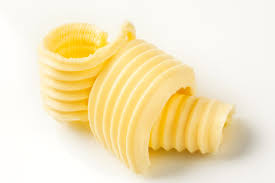Tips for reducing stress and preventing spikes in blood sugar levels
1. Eliminate sugar and refined grains
These create a spike in blood sugar followed by a sudden drop, making you feel fatigued.
2. Always eat breakfast
Breakfast should be is free of simple carbohydrates like bread and processed cereals. Try replacing toast and cereals with eggs, or try some home-made muesli using nuts and seeds with coconut oil, yoghurt and some fruit.
3. Eliminate caffeine
Caffeine pushes your poor adrenals to work even harder, ultimately bringing them even closer to exhaustion. Side-effects of caffeine and exhausted adrenal glands often result in symptoms of anxiety, poor sleep and nervousness.
4. Eat greens every day
Green leafy vegetables are an important ingredient for health but they become indispensable during stressful times. Spinach, kale, rocket, broccoli and other cruciferous vegetables contain the essential nutrients for your adrenal glands to work efficiently. They are a rich source of B vitamins, folic acid and vitamin C, with good levels of magnesium and calcium.
5. Exercise
Exercise during the day but not close to bed time. Exercise helps keep blood sugar levels low, prevent weight gain and promotes circulation and a well-functioning immune system. Too much vigorous cardiac exercise can put extra stress on your body and your adrenal glands. If you are already stressed, the key is to find a workout that doesn’t put more pressure on your fragile system. Pilates and weight bearing exercises are good choices.
6. Take time to relax
During demanding times, your sympathetic nervous system takes charge, up-regulating neural activity in the brain so you can think faster and concentrate better. This is good, but after a while, it makes it impossible to ‘switch off’.
Find your own relaxing outlet. Maybe for you it’s listening to relaxing music. Wind down in plenty of time before sleep and don’t go to bed late. Having a good night’s sleep is essential to conquering stress. This is the time when the body regenerates and repairs. Melatonin, the hormone produced during sleep is also a very powerful antioxidant, protecting us from damaging free radicals produced during stress.
7. Turn off your phone
Turn off your phone and computer well before bed time.
8. Supplements to help with relaxation and stress:
Magnesium and calming herbs such as lemon balm, passion flower, zizyphus and valerian. These supplements are particularly helpful taken before bed.
9. Take a bath
This will relax your muscles and your mind. Add some aromatherapy oils to your bath, like lavender.


 on wants to target all audiences including children.
on wants to target all audiences including children.